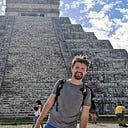Member-only story
The 7 Greatest Ancient Mysteries
History holds the capacity for handing us surprises

We consider ourselves technologically superior to our ancestors. We believe that we understand everything and can solve anything. After all, we can rely on the almighty science that put a man on the Moon and split the atom.
However, from time to time we stumble upon ancient artifacts that contradict our beliefs.
The following seven mysteries will make you wonder how our ancestors were able to create them.
1. Stonehenge is too big to be built by the prehistoric people

For many, Stonehenge is the most mysterious place in the world. One of the planet’s most famous prehistoric monuments dates to 3.000 BC and is located in England.
Stonehenge comprises a ring of standing stones, each weighing around twenty-five tons. These stones are from a quarry that was located twenty-five kilometers away from the monument’s site.
How did our prehistoric ancestors move and raise such enormous blocks of stone without the aid of a wheel and a pulley?
What was the purpose of Stonehenge? Was it an astronomical observatory, a religious site, or a healing place?
Nobody knows! But one thing is certain, Stonehenge captures our imagination.
2. The Piri Reis map showed Antarctica 250 years before its discovery

In 1929, by chance, an old map was found at the sultan’s palace in Istanbul, in Turkey. The author of the mysterious map was Piri Reis (1465–1553), a legendary commander of the Ottoman fleet.
The Piri Reis map of the world is very precise. So precise, that it even contains the continent of Antarctica. Here is where things get really interesting:
Piri Reis drew the map in 1513…

